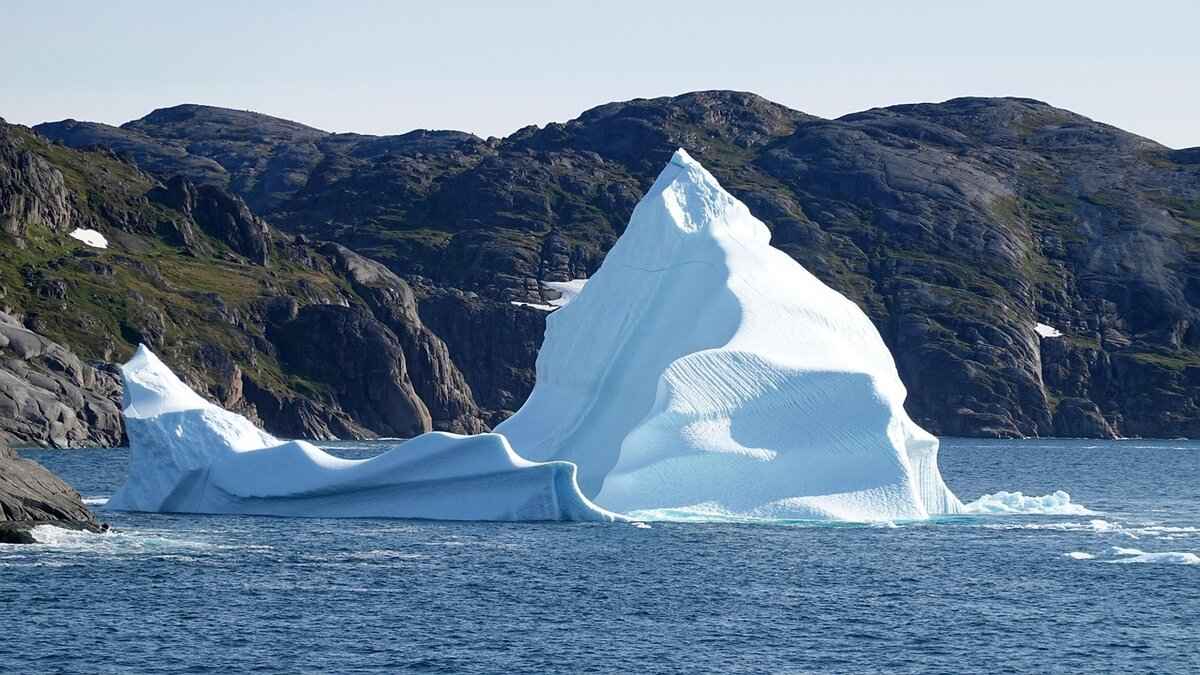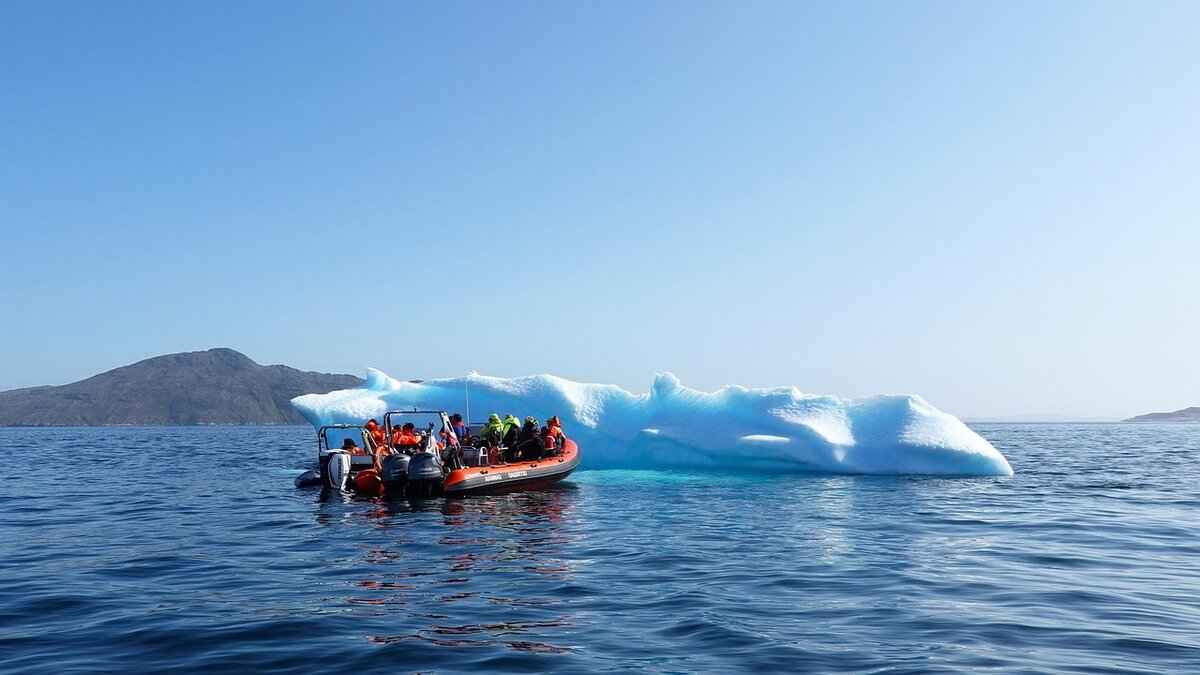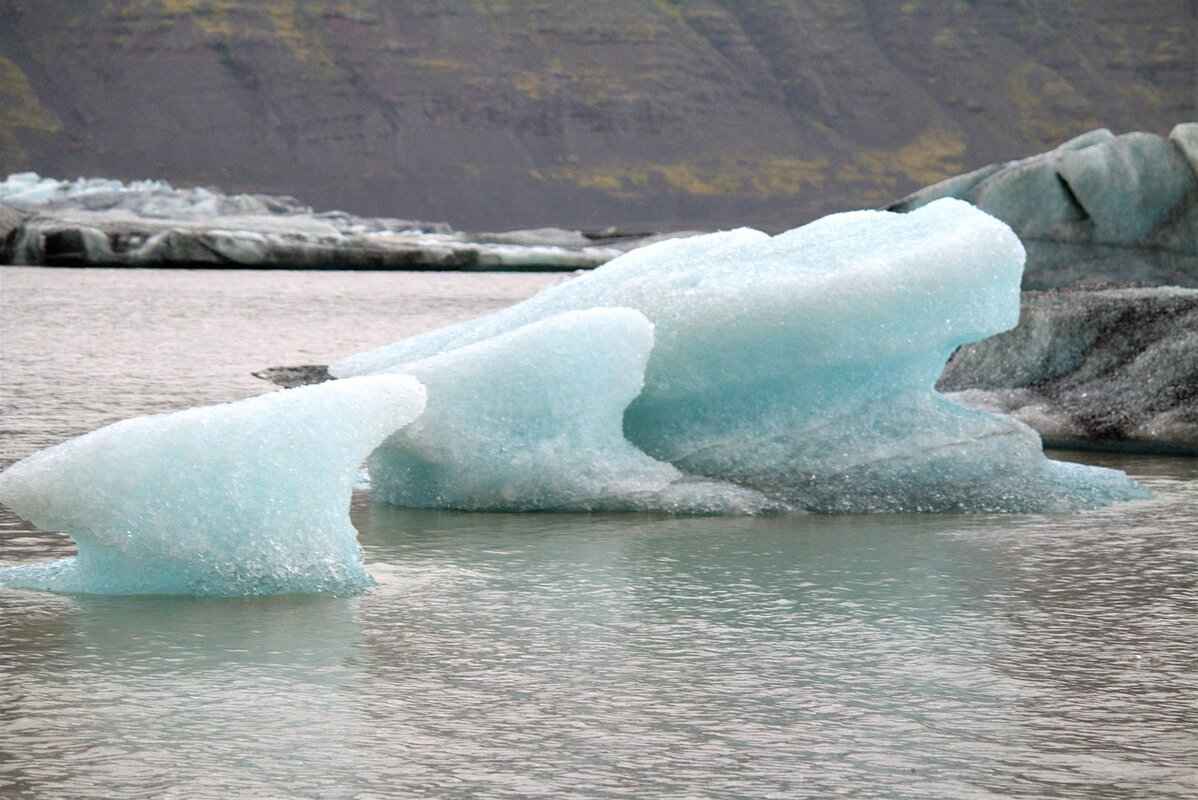This article explores the various strategies and initiatives undertaken by West Bengal to combat the impacts of climate change. It highlights adaptive measures, government policies, and community involvement.
Understanding Climate Change in West Bengal
West Bengal faces unique challenges due to climate change, including rising sea levels and increased flooding. Understanding these impacts is crucial for developing effective adaptation strategies.
Government Initiatives for Climate Adaptation
The West Bengal government has launched various initiatives aimed at enhancing resilience against climate change. These programs focus on sustainable development and environmental conservation.
- State Action Plan on Climate Change: This plan outlines specific strategies to mitigate climate impacts, emphasizing renewable energy, water resource management, and disaster preparedness.
- Renewable Energy Projects: Investments in solar and wind energy projects are pivotal in reducing carbon emissions and promoting sustainable energy sources throughout the state.
- Disaster Management Framework: A robust disaster management framework has been established to respond effectively to climate-related disasters, ensuring community safety and resilience.
Community Involvement and Awareness
Community engagement is essential for successful adaptation. Local organizations are active in raising awareness and implementing grassroots initiatives.
Impact on Agriculture and Livelihoods
Agriculture, a vital sector in West Bengal, is significantly affected by climate change. Adaptive practices are being adopted to sustain livelihoods and food security.
- Climate-Resilient Agricultural Practices: Farmers are increasingly adopting climate-resilient crops and sustainable farming techniques to combat the adverse effects of changing weather patterns.
- Support for Farmers: Government schemes provide financial and technical support to farmers, helping them transition to more sustainable practices and improve their resilience.
Urban Adaptation Strategies
Urban areas in West Bengal are also implementing adaptation strategies to address climate change impacts, focusing on infrastructure and public health.
- Green Infrastructure Development: Investments in green infrastructure, such as parks and green roofs, are being made to enhance urban resilience and improve air quality.
- Water Management Solutions: Innovative water management strategies are crucial for urban areas, addressing flooding risks and ensuring sustainable water supply.
Collaborative Efforts with NGOs
Non-governmental organizations play a significant role in climate adaptation by collaborating with local communities and the government to implement effective solutions.
- Capacity Building Programs: NGOs conduct training and capacity-building programs to empower communities, enhancing their ability to adapt to climate change.
- Research and Innovation Partnerships: Collaborative research initiatives between NGOs and academic institutions foster innovation in climate adaptation strategies.
Future Challenges and Opportunities
Despite progress, West Bengal faces ongoing challenges related to climate change. Identifying opportunities for further adaptation is essential for long-term resilience.
- Addressing Vulnerability in Coastal Areas: Coastal regions are particularly vulnerable to climate impacts, necessitating targeted interventions to safeguard communities and ecosystems.
- Policy Recommendations for Sustainable Development: Future policies should focus on integrating climate adaptation into all aspects of development planning to ensure a sustainable and resilient future for West Bengal.

Understanding Climate Change in West Bengal
West Bengal, a state in eastern India, is witnessing profound changes due to climate change. The region is particularly vulnerable to a variety of environmental challenges, most notably rising sea levels and increased flooding. These phenomena are largely attributed to global warming and have significant implications for the state’s ecology, economy, and communities.
As the Brahmaputra and Ganges rivers swell, the risk of flooding increases, threatening both urban and rural areas. Coastal regions are particularly at risk, as they face the dual threat of sea-level rise and saline intrusion, which can devastate agricultural lands. Understanding these impacts is crucial for developing effective adaptation strategies that can mitigate the adverse effects of climate change.
To combat these challenges, the state government has initiated various programs aimed at enhancing resilience. For example, the State Action Plan on Climate Change outlines specific measures to address these issues, such as promoting renewable energy and improving water resource management. These initiatives are designed not only to protect the environment but also to safeguard the livelihoods of the millions who depend on agriculture and fishing.
Moreover, community involvement is key in implementing these strategies. Local organizations are actively engaged in raising awareness and fostering sustainable practices among residents. This grassroots approach ensures that adaptation measures are tailored to the specific needs of each community, enhancing their effectiveness.
In conclusion, understanding the impacts of climate change in West Bengal is essential for developing comprehensive adaptation strategies. By combining government initiatives with community engagement, the state can build resilience against the inevitable challenges posed by a changing climate.

Government Initiatives for Climate Adaptation
The West Bengal government has implemented a range of innovative initiatives to enhance the state’s resilience against the adverse effects of climate change. These programs are designed not only to address immediate environmental challenges but also to promote long-term sustainable development and environmental conservation.
State Action Plan on Climate Change
One of the cornerstone initiatives is the State Action Plan on Climate Change, which provides a comprehensive framework for addressing climate-related issues. This plan emphasizes several key areas:
- Renewable Energy Development: Investments in solar, wind, and other renewable energy sources are prioritized to reduce dependency on fossil fuels and lower greenhouse gas emissions.
- Water Resource Management: Effective management strategies are being developed to ensure sustainable water supply, particularly in areas prone to flooding and drought.
- Disaster Preparedness: A robust framework for disaster management has been established, focusing on community safety and rapid response to climate-induced disasters.
Community Engagement and Education
Community involvement is crucial for the success of these initiatives. The government collaborates with local organizations to raise awareness about climate change and its impacts. Educational programs are implemented to inform citizens about sustainable practices and encourage participation in conservation efforts.
Support for Vulnerable Communities
Recognizing the disproportionate impact of climate change on marginalized groups, the government has launched targeted support programs. These include:
- Financial Assistance: Subsidies and grants are provided to low-income households to help them adopt climate-resilient practices.
- Technical Training: Workshops and training sessions equip communities with the skills needed to implement sustainable agricultural practices and disaster preparedness measures.
Conclusion
Through these comprehensive initiatives, the West Bengal government is making significant strides in adapting to climate change. By focusing on sustainable development and community involvement, these programs not only address current challenges but also pave the way for a more resilient future.
State Action Plan on Climate Change
The State Action Plan on Climate Change is a comprehensive framework designed to address the multifaceted challenges posed by climate change in West Bengal. This strategic plan emphasizes the need for immediate action and sustainable practices across various sectors to mitigate the adverse effects of climate change.
In particular, the plan focuses on three critical areas:
- Renewable Energy: The transition to renewable energy sources is a cornerstone of the action plan. By investing in solar and wind energy, West Bengal aims to significantly reduce its carbon footprint and promote sustainable energy consumption. The state is committed to increasing the share of renewable energy in its overall energy mix, thus ensuring a cleaner and greener future.
- Water Resource Management: Effective water management strategies are essential for addressing the challenges posed by erratic rainfall patterns and rising sea levels. The action plan includes initiatives aimed at improving water conservation, enhancing irrigation systems, and ensuring equitable access to water resources. This is crucial for supporting both urban and rural communities.
- Disaster Preparedness: With climate change leading to more frequent and severe weather events, the state has prioritized disaster preparedness. The framework includes comprehensive plans for early warning systems, community training programs, and infrastructure improvements to enhance resilience against natural disasters.
In conclusion, the serves as a vital roadmap for West Bengal, outlining actionable strategies that integrate sustainability into the core of development. By focusing on renewable energy, effective water management, and robust disaster preparedness, the state is taking significant steps towards a resilient future in the face of climate change.
Renewable Energy Projects
play a crucial role in addressing the challenges posed by climate change. In West Bengal, the emphasis on solar and wind energy projects has gained momentum, reflecting a commitment to sustainable development and a reduction in carbon emissions.
As the state grapples with the adverse effects of climate change, investments in renewable energy sources are becoming increasingly pivotal. These projects not only help in decreasing reliance on fossil fuels but also promote energy independence. The government has recognized the potential of renewable energy to create jobs, stimulate economic growth, and enhance energy security.
- Solar Energy Initiatives: West Bengal has launched several solar energy initiatives, including the installation of solar panels on rooftops and in solar parks. These initiatives aim to harness the abundant sunlight in the region.
- Wind Energy Development: The state is also exploring its wind energy potential, with plans to set up wind farms in suitable locations, contributing to the overall energy mix.
- Government Policies: Supportive policies and incentives have been introduced to encourage private investments in renewable energy projects, making it easier for businesses to transition to sustainable energy solutions.
With a growing focus on clean energy, West Bengal is not only addressing its energy needs but also making significant strides in reducing greenhouse gas emissions. The state’s commitment to renewable energy is a testament to its proactive approach in combating climate change and fostering a sustainable future.
In conclusion, the integration of renewable energy projects into West Bengal’s energy landscape is essential for achieving environmental sustainability. By investing in solar and wind energy, the state is paving the way for a cleaner, greener future while also enhancing its resilience to climate change.
Disaster Management Framework
In West Bengal, the has been meticulously developed to ensure an effective response to climate-related disasters. This framework is crucial in safeguarding communities, enhancing resilience, and minimizing the impacts of adverse climatic events.
The framework comprises several core components:
- Risk Assessment: Continuous evaluation of potential hazards such as floods, cyclones, and droughts helps in understanding vulnerabilities within communities.
- Preparedness Plans: These plans are designed to equip local authorities and communities with the necessary tools and protocols to respond swiftly during a disaster.
- Response Coordination: A well-structured command system ensures that all agencies work together seamlessly during emergencies, providing timely assistance to affected populations.
- Recovery Strategies: Post-disaster recovery plans focus on restoring normalcy and rebuilding communities with a stronger emphasis on resilience against future disasters.
The framework promotes community involvement through training programs and awareness campaigns. Local residents are educated on disaster preparedness and response techniques, enabling them to act effectively in emergencies.
Moreover, the integration of technology plays a pivotal role in enhancing the disaster management framework. Advanced warning systems and data analytics are employed to predict disasters and assess their potential impact, allowing for proactive measures.
In conclusion, West Bengal’s robust disaster management framework is a testament to the state’s commitment to community safety and resilience. By focusing on preparedness, response, and recovery, the framework not only protects lives but also fosters a culture of resilience among its citizens.
Community Involvement and Awareness
Community involvement plays a crucial role in the successful adaptation to climate change in West Bengal. This region, rich in biodiversity and cultural heritage, faces numerous environmental challenges, including rising sea levels, increased flooding, and unpredictable weather patterns. Therefore, engaging local communities is not just beneficial but essential for implementing effective adaptation strategies.
Local organizations act as the backbone of these efforts, raising awareness about climate change impacts and mobilizing community action. Through workshops, seminars, and outreach programs, they educate residents on sustainable practices that can mitigate the effects of climate change. These grassroots initiatives empower individuals and foster a sense of responsibility towards the environment.
| Community Initiatives | Description |
|---|---|
| Awareness Campaigns | Programs aimed at educating the public about climate change and its local impacts. |
| Tree Planting Drives | Community-led efforts to increase green cover and combat air pollution. |
| Waste Management Projects | Initiatives focused on reducing waste and promoting recycling practices. |
Moreover, these organizations often collaborate with government agencies and NGOs to enhance the effectiveness of their programs. By pooling resources and expertise, they can implement larger-scale projects that have a more significant impact on the community. For instance, capacity-building workshops help equip local leaders with the skills needed to manage environmental challenges effectively.
In addition to educational efforts, community engagement fosters a sense of ownership over local resources. When residents feel connected to their environment, they are more likely to participate in conservation efforts and advocate for sustainable policies. This involvement is vital for creating resilient communities that can adapt to the ongoing challenges posed by climate change.
In conclusion, community engagement is not just a component of climate adaptation strategies in West Bengal; it is a fundamental pillar that supports the entire framework of resilience. By actively participating in adaptation efforts, local communities can significantly influence the effectiveness of these initiatives, ensuring a sustainable future for the region.

Impact on Agriculture and Livelihoods
Agriculture is not just a means of sustenance but a vital lifeline for millions in West Bengal. The sector is facing unprecedented challenges due to climate change, which has profound implications for food security and the livelihoods of farmers. As the climate continues to evolve, it is essential to explore how the agricultural landscape is adapting to these changes.
Challenges Faced by Farmers
- Erratic Weather Patterns: Farmers are grappling with unpredictable rainfall and extreme weather events, which disrupt planting and harvesting schedules.
- Soil Degradation: Increased flooding and drought conditions lead to soil erosion and nutrient depletion, affecting crop yields.
- Pest and Disease Proliferation: Warmer temperatures contribute to the rise of pests and diseases, threatening crop health.
Adaptive Agricultural Practices
In response to these challenges, farmers in West Bengal are increasingly adopting climate-resilient agricultural practices. These practices include:
- Crop Diversification: By cultivating a variety of crops, farmers can reduce risk and enhance food security.
- Organic Farming: Sustainable farming techniques, such as organic farming, are gaining traction, promoting soil health and reducing dependency on chemical fertilizers.
- Water Conservation Techniques: Techniques like rainwater harvesting and drip irrigation are being implemented to optimize water usage.
Government Support and Initiatives
The West Bengal government has recognized the importance of supporting farmers through various schemes. Initiatives such as financial assistance for adopting sustainable practices and providing access to climate-resilient seeds are essential for enhancing farmers’ resilience.
Community Engagement and Education
Community involvement is crucial in promoting adaptive practices. Local organizations are conducting workshops and training sessions to educate farmers about sustainable techniques and climate change impacts. This grassroots approach fosters a sense of ownership and collective action among farmers.
Conclusion
As climate change continues to pose significant threats to agriculture in West Bengal, the resilience of farmers will depend on their ability to adapt through innovative practices, supported by government initiatives and community engagement. By embracing change, the agricultural sector can continue to thrive, ensuring food security and sustainable livelihoods for future generations.
Climate-Resilient Agricultural Practices
Climate change poses significant challenges to agriculture, particularly in regions like West Bengal. As weather patterns become increasingly unpredictable, farmers are turning to to safeguard their livelihoods and ensure food security. This article delves into the various strategies employed by farmers to adapt to these changes.
Climate-resilient agricultural practices are methods that enhance the ability of farming systems to withstand the adverse effects of climate change. These practices not only focus on crop selection but also emphasize sustainable farming techniques that promote soil health and biodiversity.
- Drought-Resistant Varieties: Farmers are increasingly planting crops that are better suited to withstand periods of low rainfall, such as millets and pulses.
- Flood-Tolerant Varieties: In areas prone to flooding, crops like flood-resistant rice have been developed to survive submerged conditions.
- Diverse Crop Rotation: Implementing a diverse crop rotation system helps maintain soil fertility and reduces pest outbreaks.
In addition to selecting resilient crops, farmers are adopting sustainable farming techniques that enhance productivity while minimizing environmental impact. Some of these techniques include:
- Agroforestry: Integrating trees into agricultural landscapes to improve soil health and provide additional income sources.
- Organic Farming: Reducing reliance on chemical fertilizers and pesticides to promote a healthier ecosystem.
- Conservation Tillage: Minimizing soil disturbance to enhance moisture retention and reduce erosion.
Farmers are not alone in this endeavor. Various government initiatives and NGO collaborations provide support through training, resources, and financial assistance. This collective effort ensures that farmers are equipped to implement these practices effectively.
As climate change continues to impact agriculture in West Bengal, the shift towards climate-resilient agricultural practices is essential. By adopting innovative crop varieties and sustainable farming techniques, farmers can enhance their resilience and contribute to a more sustainable future.
Support for Farmers
In the face of climate change, farmers in West Bengal are at the forefront of adapting their practices to ensure sustainability and resilience. The government has recognized the critical role of agriculture in the state’s economy and food security, leading to the implementation of various financial and technical support schemes designed to assist farmers in transitioning to more sustainable practices.
One of the key initiatives is the provision of subsidized loans and grants, which enable farmers to invest in innovative technologies and sustainable farming methods. This financial support is crucial for farmers who may struggle with the initial costs of adopting new practices. Additionally, the government conducts regular workshops and training sessions to educate farmers about climate-resilient agricultural techniques, such as crop rotation, organic farming, and integrated pest management.
Furthermore, the introduction of crop insurance schemes protects farmers against potential losses due to unpredictable weather patterns and natural disasters. This safety net not only boosts farmers’ confidence but also encourages them to experiment with diverse crops that can thrive under changing climatic conditions.
The government also collaborates with local agricultural universities and research institutions to develop high-yielding and drought-resistant crop varieties. These partnerships ensure that farmers have access to the latest research and innovations, allowing them to make informed decisions about their crops and farming practices.
In conclusion, the comprehensive support provided by the government is pivotal in enabling farmers in West Bengal to adapt to the challenges posed by climate change. By fostering a more resilient agricultural sector, these initiatives not only enhance food security but also contribute to the overall sustainability of the region’s economy.

Urban Adaptation Strategies
in West Bengal are critical as cities face the growing threats posed by climate change. With increasing temperatures, erratic rainfall, and rising sea levels, urban areas must implement effective strategies to ensure resilience and sustainability.
The government and local authorities are focusing on two main areas: infrastructure development and public health. These strategies aim to create a safer environment for residents while mitigating the adverse effects of climate change.
| Strategy | Description |
|---|---|
| Green Infrastructure | Investment in parks, green roofs, and urban forests to improve air quality and provide natural cooling. |
| Flood Management Systems | Implementation of advanced drainage systems and flood barriers to manage excessive rainfall and prevent urban flooding. |
| Public Health Initiatives | Programs aimed at enhancing community health services, especially during climate-related health crises. |
One innovative approach is the development of smart water management solutions. These solutions utilize technology to monitor water levels and quality, ensuring adequate supply and reducing waste. For instance, rainwater harvesting systems are being integrated into urban planning, enabling cities to capture and utilize rainwater effectively.
Moreover, urban areas are prioritizing community engagement. Local communities are encouraged to participate in adaptation strategies, fostering a sense of ownership and responsibility. Workshops and training sessions are organized to educate residents about sustainable practices and disaster preparedness.
In conclusion, the in West Bengal represent a proactive approach to combat the impacts of climate change. By focusing on infrastructure improvements and public health initiatives, cities can enhance their resilience and safeguard the well-being of their inhabitants.
Green Infrastructure Development
plays a crucial role in enhancing urban resilience and improving air quality in West Bengal. As cities grapple with the challenges posed by climate change, investing in green spaces has emerged as a vital strategy for sustainable urban development.
Urban areas are increasingly recognizing the importance of green infrastructure such as parks, green roofs, and urban forests. These initiatives not only provide aesthetic benefits but also offer significant ecological advantages. For instance, parks serve as natural air filters, absorbing pollutants and releasing oxygen, thereby improving the overall air quality for city dwellers.
Moreover, green roofs contribute to energy efficiency by insulating buildings and reducing the need for air conditioning during hot months. This not only lowers energy costs for residents but also minimizes the urban heat island effect, a common issue in densely populated areas.
Additionally, the integration of green infrastructure helps manage stormwater runoff, mitigating flooding risks during heavy rainfall. By absorbing excess rainwater, these green spaces reduce the burden on urban drainage systems, preventing overflow and waterlogging.
Community engagement is essential in the development and maintenance of these green spaces. Local residents can participate in planting initiatives, fostering a sense of ownership and responsibility towards their environment. This involvement not only enhances community ties but also educates citizens about the importance of sustainability and conservation.
In conclusion, the commitment to green infrastructure in West Bengal represents a forward-thinking approach to urban planning. By prioritizing parks and green roofs, the state is taking significant steps to enhance urban resilience, improve air quality, and create a more sustainable future for its residents.
Water Management Solutions
play a critical role in urban planning, especially in regions facing the dual challenges of climate change and rapid urbanization. As cities expand, the demand for water increases, while the risk of flooding escalates due to changing weather patterns. To tackle these issues, innovative strategies must be implemented to ensure a sustainable water supply and mitigate flooding risks.
One effective approach is the implementation of green infrastructure. This involves creating natural systems, such as wetlands and rain gardens, which can absorb excess rainwater and reduce runoff. By integrating these systems into urban landscapes, cities can enhance their resilience against flooding while simultaneously improving water quality.
Another strategy is the use of smart water management technologies. These technologies include advanced metering systems that monitor water usage in real-time, allowing for better resource allocation and leak detection. By utilizing data analytics, cities can optimize their water distribution networks, ensuring efficiency and sustainability.
Furthermore, community engagement is essential in developing effective water management solutions. Local residents can contribute valuable insights into their water needs and preferences. Initiatives such as community workshops and educational programs can raise awareness about water conservation practices, fostering a culture of sustainability.
Additionally, rainwater harvesting systems can be implemented in urban areas to capture and store rainwater for non-potable uses, such as irrigation and toilet flushing. This not only reduces the demand on municipal water supplies but also helps manage stormwater runoff.
In conclusion, innovative water management solutions are vital for urban areas to address flooding risks and ensure a sustainable water supply. By combining green infrastructure, smart technologies, community involvement, and rainwater harvesting, cities can create resilient water systems that adapt to the challenges posed by climate change.

Collaborative Efforts with NGOs
In the fight against climate change, non-governmental organizations (NGOs) are pivotal in fostering collaboration between local communities and governmental bodies. Their efforts are crucial in implementing effective climate adaptation solutions that cater to the unique challenges faced by various regions, including West Bengal.
NGOs work tirelessly to bridge the gap between scientific research and community needs. They engage in a variety of activities aimed at enhancing local capacity and resilience against climate impacts. Here are some key areas where NGOs are making a significant difference:
- Community Training Programs: NGOs often conduct workshops and training sessions to educate local populations about climate change and sustainable practices. These programs empower communities to adopt climate-resilient strategies in agriculture, water management, and disaster preparedness.
- Research Partnerships: Collaborating with academic institutions, NGOs facilitate research initiatives that focus on innovative adaptation strategies. This collaboration helps in developing tailored solutions that address specific local challenges.
- Advocacy and Policy Influence: NGOs play a vital role in advocating for policies that support climate adaptation. By engaging with policymakers, they ensure that community voices are heard and that relevant policies are enacted.
- Resource Mobilization: NGOs often assist in mobilizing resources for community projects, helping to secure funding and technical support for local initiatives aimed at enhancing resilience to climate change.
The impact of these collaborative efforts is profound. By working closely with communities, NGOs not only provide essential resources but also foster a sense of ownership and responsibility among local populations. This holistic approach ensures that adaptation strategies are not only effective but also sustainable in the long run.
In conclusion, the collaborative efforts of NGOs in climate adaptation are vital for building resilience in vulnerable communities. Their work exemplifies the importance of partnership and shared responsibility in addressing the challenges posed by climate change.
Capacity Building Programs
are essential initiatives that empower communities to effectively respond to the challenges posed by climate change. These programs are designed to enhance the skills, knowledge, and resources of individuals and groups, enabling them to adapt to environmental shifts and improve their resilience.
In West Bengal, various non-governmental organizations (NGOs) play a pivotal role in implementing these capacity-building programs. By focusing on practical training and community engagement, these organizations foster a sense of ownership and responsibility among local populations. This approach not only builds individual capabilities but also strengthens community networks, facilitating a collaborative response to climate-related issues.
| Program Type | Description | Target Audience |
|---|---|---|
| Workshops | Hands-on training sessions focused on sustainable practices and climate adaptation strategies. | Farmers, community leaders, and local stakeholders. |
| Awareness Campaigns | Educational initiatives aimed at increasing knowledge about climate change impacts and adaptation techniques. | General public and school children. |
| Technical Assistance | Providing expert guidance on implementing climate-resilient practices in agriculture and infrastructure. | Local governments and NGOs. |
Furthermore, these programs are tailored to address specific local challenges, such as flood management and crop diversification. For instance, training sessions may include techniques for cultivating climate-resilient crops or implementing sustainable water management practices. This targeted approach ensures that communities are not only informed but also equipped with practical tools to face environmental changes.
In addition to workshops and training, NGOs often collaborate with local governments to integrate these capacity-building initiatives into broader development plans. This collaboration ensures sustainability and long-term impact, as community members are empowered to take an active role in shaping their futures.
In conclusion, are vital for enhancing community resilience against climate change in West Bengal. By equipping individuals with the necessary skills and knowledge, these initiatives foster a proactive approach to environmental challenges, ultimately contributing to a more sustainable and adaptable society.
Research and Innovation Partnerships
play a crucial role in addressing the pressing challenges posed by climate change in West Bengal. These partnerships, particularly between non-governmental organizations (NGOs) and academic institutions, are essential for fostering innovation in climate adaptation strategies. By leveraging the strengths of both sectors, these collaborations can drive impactful solutions that are both sustainable and effective.
In recent years, the collaboration between NGOs and academic institutions has become increasingly important. NGOs often have deep-rooted connections within local communities, allowing them to understand the unique challenges faced by different populations. Meanwhile, academic institutions bring in a wealth of research capabilities and technical expertise. Together, they can develop tailored solutions that address specific local needs.
- Joint Research Initiatives: Collaborative research projects can lead to the development of innovative technologies and practices that enhance climate resilience. For instance, studies focusing on agricultural adaptation can result in new crop varieties that withstand extreme weather conditions.
- Capacity Building: These partnerships often include training programs that empower local communities with the knowledge and skills necessary to implement adaptive strategies effectively. This can lead to increased community involvement and ownership of climate initiatives.
- Policy Advocacy: NGOs and academic institutions can work together to advocate for policies that support sustainable development and climate resilience. Their combined efforts can influence decision-makers and ensure that local voices are heard in broader climate discussions.
Moreover, the exchange of knowledge and resources between these organizations fosters a culture of innovation. By sharing best practices and lessons learned, they can continuously improve their approaches to climate adaptation. This collaborative spirit not only enhances the effectiveness of individual initiatives but also contributes to a more comprehensive understanding of climate challenges.
In conclusion, between NGOs and academic institutions are vital for developing effective climate adaptation strategies in West Bengal. By harnessing their collective strengths, these collaborations can lead to innovative solutions that not only address immediate challenges but also pave the way for a more sustainable and resilient future.

Future Challenges and Opportunities
As West Bengal progresses in its efforts to adapt to climate change, it is vital to recognize that significant challenges remain. The state must confront these challenges head-on to ensure sustainable development and long-term resilience for its communities and ecosystems.
One of the most pressing issues is the vulnerability of coastal areas. These regions face the dual threats of rising sea levels and increased frequency of severe weather events, which can lead to devastating flooding and erosion. To address these risks, targeted interventions, such as the construction of sea walls, restoration of mangroves, and the implementation of early warning systems, are essential. These measures can help protect local communities and preserve vital ecosystems.
Moreover, the integration of climate adaptation strategies into all aspects of development planning is critical. Future policies should prioritize sustainable practices across various sectors, including agriculture, urban development, and infrastructure. This approach will not only enhance resilience but also promote economic growth and social equity.
In addition to policy reforms, fostering community engagement is crucial. Local populations should be actively involved in decision-making processes regarding climate adaptation. Initiatives that empower communities through education and resources can lead to innovative solutions tailored to local needs.
Furthermore, collaboration with non-governmental organizations (NGOs) and academic institutions can drive research and innovation in climate adaptation strategies. These partnerships can facilitate the sharing of knowledge and best practices, ensuring that West Bengal remains at the forefront of climate resilience efforts.
In conclusion, while West Bengal has made strides in addressing climate change, ongoing challenges require a concerted effort from all stakeholders. By focusing on vulnerable coastal areas, integrating adaptation into development planning, and fostering community involvement, the state can identify and seize opportunities for a resilient future.
Addressing Vulnerability in Coastal Areas
Coastal regions are among the most vulnerable areas when it comes to the impacts of climate change. These regions face a myriad of challenges, including rising sea levels, increased flooding, and severe weather events. As such, it is imperative to implement targeted interventions that not only protect communities but also preserve vital ecosystems.
To address these vulnerabilities, a multi-faceted approach is essential. This includes:
- Infrastructure Development: Investing in resilient infrastructure is crucial. This involves constructing sea walls, improving drainage systems, and enhancing coastal defenses to withstand storm surges and flooding.
- Restoration of Natural Barriers: Mangroves and wetlands act as natural buffers against storm surges. Restoration and conservation of these ecosystems can significantly mitigate the impacts of climate change.
- Community Engagement: Involving local communities in planning and decision-making processes ensures that interventions are tailored to their specific needs. Education and awareness campaigns can empower residents to adopt sustainable practices.
- Policy Implementation: Effective policies must be established to regulate land use and development in coastal areas. This includes enforcing building codes and zoning laws that consider climate risks.
Moreover, collaboration between government bodies, non-profit organizations, and local communities is vital for the success of these initiatives. By pooling resources and expertise, stakeholders can develop comprehensive strategies that enhance resilience.
In conclusion, addressing the vulnerabilities of coastal areas requires a proactive approach that integrates infrastructure development, ecosystem restoration, community involvement, and sound policy-making. By prioritizing these strategies, we can safeguard both communities and ecosystems from the adverse effects of climate change.
Policy Recommendations for Sustainable Development
As West Bengal grapples with the pressing challenges of climate change, it becomes increasingly vital for future policies to integrate climate adaptation into every facet of development planning. This comprehensive approach is essential to ensure a sustainable and resilient future for the region.
To effectively address the impacts of climate change, policies should prioritize the following key areas:
- Holistic Planning: Development strategies must incorporate climate considerations at all levels, from local to state-wide initiatives. This means evaluating potential climate impacts during the planning stages of infrastructure projects, urban development, and agricultural practices.
- Community Engagement: Involving local communities in decision-making processes fosters greater resilience. Policies should encourage grassroots participation, ensuring that the voices of those most affected by climate change are heard and integrated into planning.
- Investment in Green Technologies: Transitioning to renewable energy sources and promoting sustainable technologies are crucial. Policies should provide incentives for businesses and households to adopt green technologies, thereby reducing carbon footprints.
- Disaster Preparedness: Strengthening disaster management frameworks is essential to mitigate the impacts of climate-related disasters. This includes improving early warning systems and enhancing community preparedness.
- Education and Awareness: Raising awareness about climate change and its effects is vital. Educational programs should be implemented to inform citizens about sustainable practices and the importance of adaptation measures.
In conclusion, by integrating climate adaptation into development planning, West Bengal can pave the way for a sustainable future. This proactive approach will not only protect vulnerable communities but also foster economic growth and environmental stewardship, ensuring resilience in the face of climate challenges.
Frequently Asked Questions
- What are the main challenges West Bengal faces due to climate change?
West Bengal is grappling with rising sea levels, increased flooding, and erratic weather patterns. These challenges threaten agriculture, livelihoods, and overall community safety.
- How is the West Bengal government addressing climate change?
The government has launched several initiatives, including the State Action Plan on Climate Change, focusing on renewable energy, disaster preparedness, and sustainable development to enhance resilience.
- What role do communities play in climate adaptation?
Community involvement is crucial. Local organizations are actively raising awareness and implementing grassroots initiatives, ensuring that adaptation strategies are effective and tailored to local needs.
- How is agriculture being impacted by climate change in West Bengal?
Agriculture, a key sector, is significantly affected. Farmers are adopting climate-resilient crops and sustainable practices to maintain food security and protect their livelihoods.
- What urban adaptation strategies are being implemented?
Urban areas are focusing on green infrastructure development and innovative water management solutions to combat flooding risks and improve public health in response to climate impacts.
- What is the role of NGOs in climate adaptation?
NGOs collaborate with local communities and government bodies to implement effective climate adaptation strategies, providing training and fostering research partnerships for innovative solutions.
- What are the future challenges for West Bengal regarding climate change?
Despite progress, challenges remain, particularly in coastal areas. Future policies must focus on integrating climate adaptation into development planning for long-term resilience.














